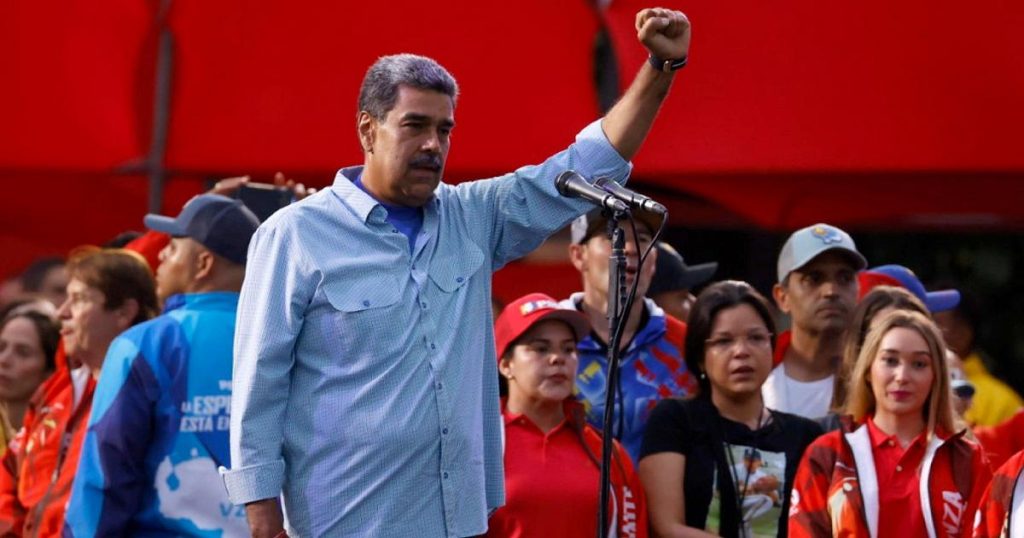With 80% of the votes counted, Nicolás Maduro has obtained 5,150,092 votes, which is 51.2%, while his direct opponent, Edmundo González Urrutia, stopped at 4,445,978, or 44.02%. The National Electoral Council announced this six hours after the polls closed. Voter turnout was 59%. The Council also reported a “massive hacker attack” that caused delays. Meanwhile, the opposition has denounced irregularities in the scrutiny of the presidential elections. According to the Democratic Unity Platform (PUD), the National Electoral Council delayed the transmission of results in many centers. Former deputy Delsa Solórzano, on behalf of the coalition, stated that their witnesses were prevented from obtaining the minutes and were removed from their polling stations.
Open the polls, the first exit polls were conflicting. Data from the Hinterlaces institute, close to the government’s positions, showed the outgoing president leading with 54.57%, against Urrutia’s 42.82%. The release of the survey sparked controversy. On the other hand, analyst Andres Izarra – exempt from the constraint of not publishing polls as a resident of Germany – released data indicating that the challenger was ahead with 58.7% of the preferences against Maduro’s 37.24%. Peru has recalled its ambassador to Venezuela, as announced by the Lima Foreign Minister. This move is a result of the ongoing political tension and alleged irregularities in the Venezuelan election process. The election results have led to further division and unrest among the Venezuelan population, as accusations of electoral malpractice and fraud continue to spread.
The National Electoral Council’s announcement of Maduro’s victory with 51.2% of the votes has raised doubts and sparked international concern. Reports of irregularities and delays in the vote count have fueled accusations of electoral fraud by the opposition and led to a lack of confidence in the legitimacy of the election results. The opposition’s allegations of suppressed access for their witnesses and interference in the voting process have intensified the political turmoil in Venezuela and raised questions about the transparency of the electoral system. The international community, including Peru, continues to monitor the situation closely and express their disapproval of the electoral process.
The conflicting exit polls and the final election results have exposed deep divisions within Venezuelan society and heightened political tensions. The discrepancy in the polling data and the allegations of irregularities have fueled uncertainty and skepticism among the population, leading to protests and calls for transparency in the electoral process. The accusations of a “massive hacker attack” and the reported hindrances faced by opposition witnesses have further complicated the situation and raised doubts about the fairness of the election. The ongoing controversy and unrest following the election have highlighted the challenges facing Venezuela’s democratic institutions and the need for credible and transparent electoral procedures to ensure the legitimacy of the political process.
The contrasting narratives surrounding the Venezuelan presidential election reflect the larger political and social challenges facing the country. The deep polarization between the government and the opposition, compounded by accusations of electoral fraud and irregularities, has further fractured the Venezuelan society and undermined the trust in democratic institutions. The international response to the election results, including Peru’s decision to recall its ambassador, underscores the widespread concern over the credibility of the electoral process and the need for accountability and transparency in Venezuela’s political system. The ongoing protests and unrest following the election highlight the urgent need for dialogue and reconciliation to address the deep-rooted issues and foster a peaceful and democratic transition in Venezuela.
In conclusion, the Venezuelan presidential election results and the subsequent allegations of irregularities and electoral fraud have deepened the political crisis in the country and raised concerns about the legitimacy of the electoral process. The conflicting exit polls, delays in the vote count, and reports of hindrances faced by opposition witnesses have fueled tensions and skepticism among the population, leading to protests and calls for transparency. The international community’s response, including Peru’s decision to recall its ambassador, reflects the widespread concern over the credibility of the election and the need for accountability and transparency in Venezuela’s political system. Moving forward, it is essential for all parties to engage in dialogue and reconciliation to address the underlying issues and work towards a peaceful and democratic resolution to the political crisis in Venezuela.


